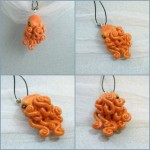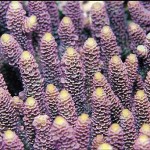The longest data series on plastic in the open sea was collected by the student-sailor-scientists of the Sea Education Association (SEA). SEA runs the Sea Semester, where undergraduate and high school students can learn oceanography, maritime history, and seamanship aboard one of two gorgeous tall ships, one in the Atlantic, one in the Pacific.* Now SEA has embarked on an extensive study of plastic debris in the North Atlantic aboard the the SSV Corwith Cramer.
You can follow along at their webpage complete with blog, crew bios, science results, videos, and more. Recently, Chief Scientist Giora Proskurowski wrote:
Our hauls of plastic have been fairly consistent, and we’ve tallied about ~70 pieces per net tow, which works out to a surface concentration of around 50,000 pieces per square kilometer. These values are well within the range that we’ve found in this region before, but do not represent the super high values that define the center of the accumulation zone.
Assuming that each plastic piece weighs less than a 0.1 g, this means that within the area that we can see from the deck of our ship (about 4.5 nautical miles) there are almost 800 pounds of tiny plastic fragments floating in the surface waters. It is extremely important to realize that the plastic fragments are small enough that you cannot easily observe them from the deck of the ship. Thus, we do not generally know if we’re pulling up a net full of plastic or not. This makes for exciting – and troubling – first glances at the sample as we empty the contents of the net from cod-end jar (the collection vessel at the end of the net) into a bucket.
Here’s a video of Giora talking about their preparations to go to sea for 35 days:
* Full disclosure: I’m super excited to be headed across the Pacific with SEA’s other ship, the SSV Robert C. Seamans, in a few weeks. More on that soon!







So, what’s a good plastics hauling chanty?
After “Haul on The Bowline” http://www.youtube.com/watch?v=rwMBUX5kPrw
Haul on the manta
Plastic’s in the ocean
Haul on the manta
The manta HAUL!
Haul on the manta
We’re measuring the plastic…
Haul on the manta
The zooplankton’s in formalin…
Haul on the manta
You cannot drink the formalin…
If you’re curious what this looks like, here is video that 5gyres.org shot in January and February in this same area of the North Atlantic.
http://www.youtube.com/watch?v=cVXTNpTs32M
http://www.youtube.com/watch?v=uo7xK0KjIyU&feature=related
Has anyone considered the pro-active thought of retraining factory fishing boats to “harvest” this plastic and recycle it?
There is, currently available, a device – Plas2Fuel – that digests plastics to convert it back to it’s origins – oil.
Retrofit factory trawlers with these devices and *presto* lemonade!
Steve Swain
The difficulty is that the plastic particles are very small – often microscopic – and removing them also removes a great deal of sea life. More details here, here, here, and here.